For new residents relocating to the Lowcountry, Johns Island is a popular choice, just a short drive from Charleston and offering natural beauty interspersed with well-priced new subdivisions. Just beyond is Wadmalaw, a farther drive but a pristine sea island offering large parcels and natural beauty. Combine a trek to the two islands for a perfect day trip featuring roadside farm stands, a winery, brewery, beautiful parks, great food, and a visit to the oldest tree east of the Mississippi. Whether you live on the islands or drive in, there’s plenty to enjoy year-round.
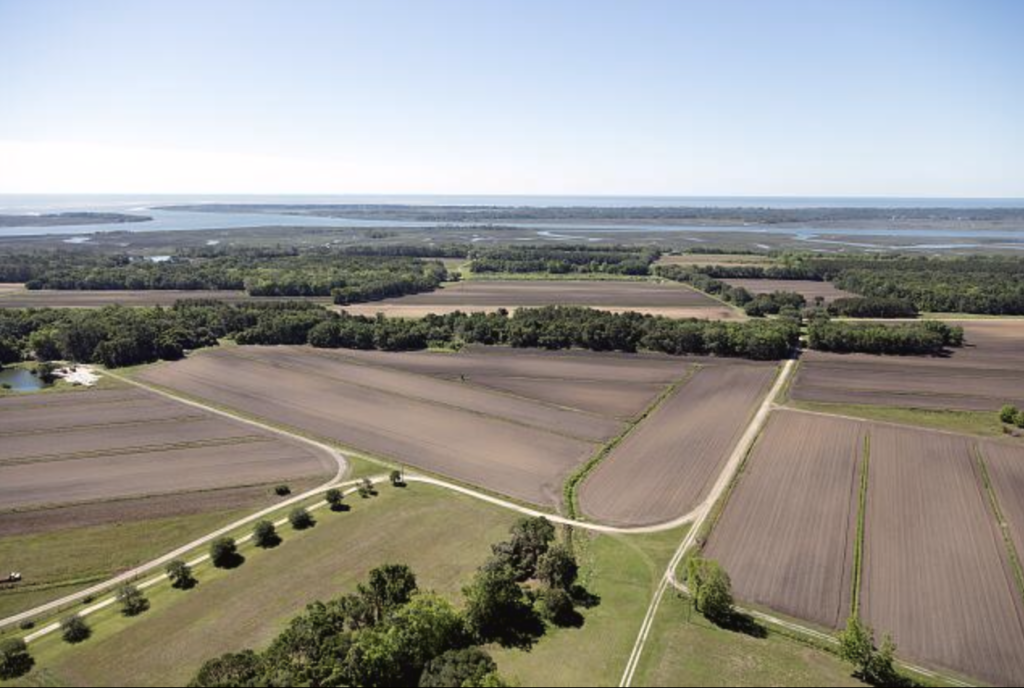
Johns and Wadmalaw are both sea islands with similar history, occupied by local Native American tribes and then converted to cotton and rice plantations worked by enslaved Africans whose Gullah ancestors still live on the land. These islands retain historic plantation houses (privately owned and occasionally offered for sale), small farms, crossroads communities, maritime traditions like shrimping and sailing, and natural wonder in the form of marshes, creeks, coastlines, and wooded trails.

To experience the best that the islands have to offer, start the day with breakfast at Sunrise Bistro on Main Road heading onto Johns Island. They’re known for their hearty breakfasts and Greek specialties. Chicken and Waffles and French Toast Sandwich mains come with a side of meat, grits, and syrup. There’s also a delicious crab cake benedict, loads of omelet choices, and salads, wraps, and plates for lunch.
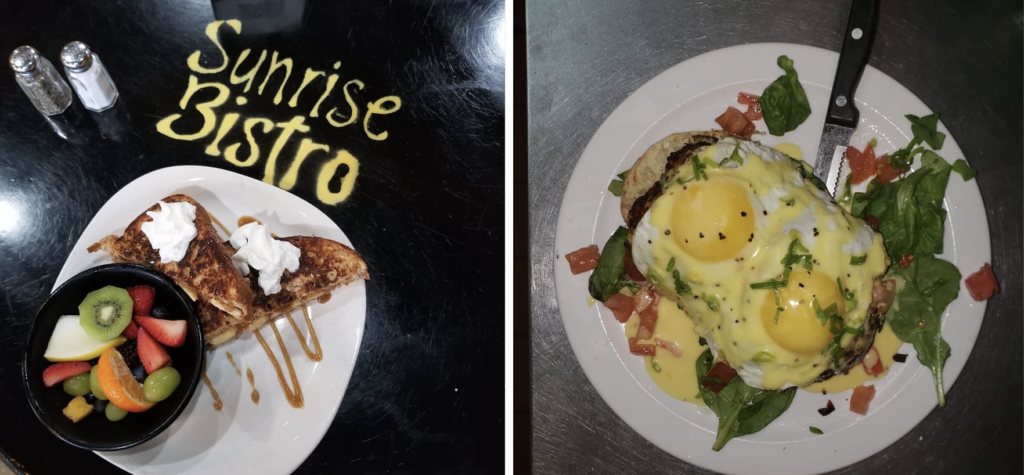
After breakfast, John’s Island County Park and Mullet Hall Equestrian Center are perfect for outdoor enthusiasts, with 738 acres of pine and marsh trails. The land began as the Oaks Plantation and was later merged with Mullet Hall plantation. It was owned by the Limehouses through most of the twentieth century, a family that are still a big name on the island. Mullet Hall doesn’t offer lessons or lease horses, but guests can join the equestrian fun by attending one of the many annual horse shows or festivals at the park. Johns Island Park also has a large off-leash dog park with washing stations, a disc golf course, archery range, and miles of walking trails.
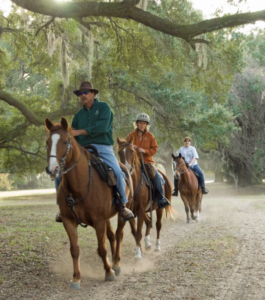
On the way to the next stop, visit Blackbird Market for a tasty lunch in-house, or to pack a picnic. Blackbird is both a restaurant and a grocery that specializes in local produce, beer, baked goods, and prepared foods (Geechy Boy Grits, Botany Bay Salts, and Cherrypoint Seafood to name a few). Sit down meal choices include flounder, shrimp, or oyster plates served with two traditional sides (mac and cheese, mac salad, slaw, collards, rice and gravy, hushpuppies, chips, grits) and take out options change daily, with delicious options like muffuletta sandwiches, ribs, and fried chicken. Blackbird also offers boxes “that feed your family for a week” with locally sources ingredients.
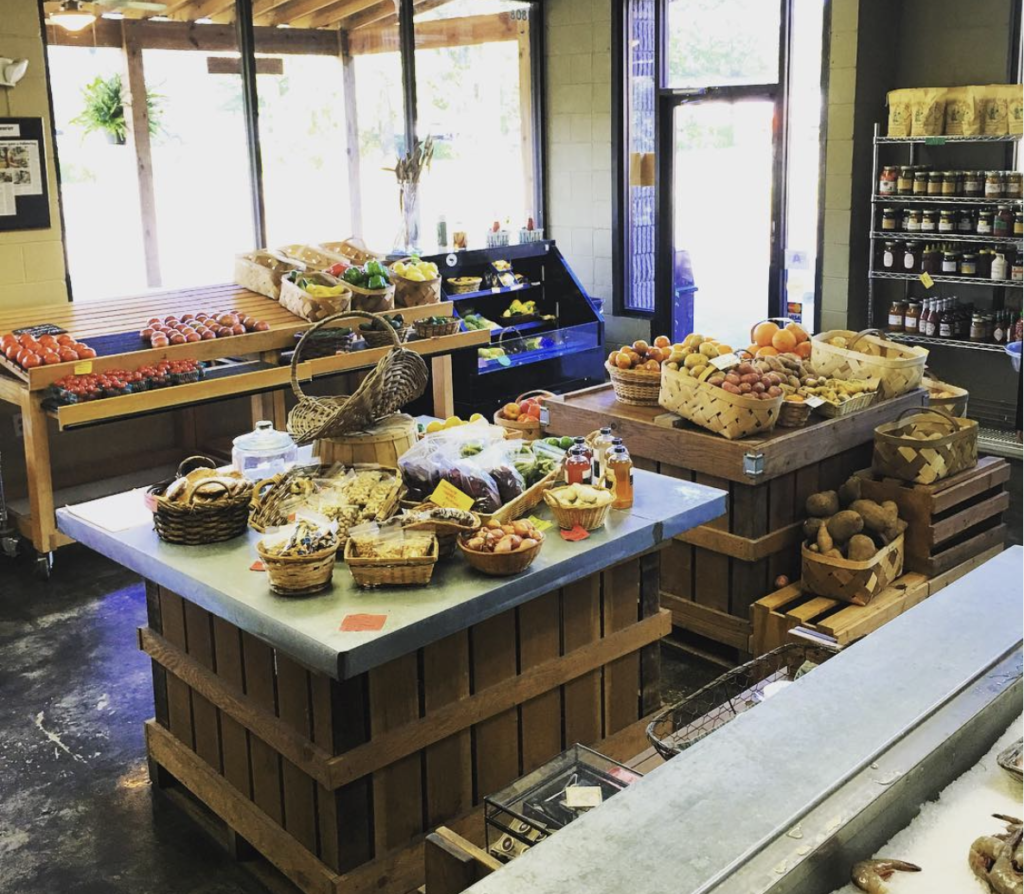
Rosebank Farms on Betsy Kerrison Parkway is stocked to the brim with produce, seafood, and prepared food. They carry Clemson blue cheese and local honey, Storey Farms fresh eggs, key lime pie, tomato pie, quintessential boiled peanuts, fresh caught shrimp and daily fish, South Carolina peaches and blueberries, loads of tomato varieties and peppers, corn, and of course, Johns Island-grown sweet potatoes. Farmer Sidi Limehouse is a true island fixture and grows much of the produce on his 65-acre farm, while partner Louise Bennett bakes and sources goods from other farms. Rosebank offers delicious, daily changing entrees to go, like goat cheese and honey beet salad, flounder and tomato stew, braised beef brisket, and white bean and broccoli white wine sauce on rotini pasta.
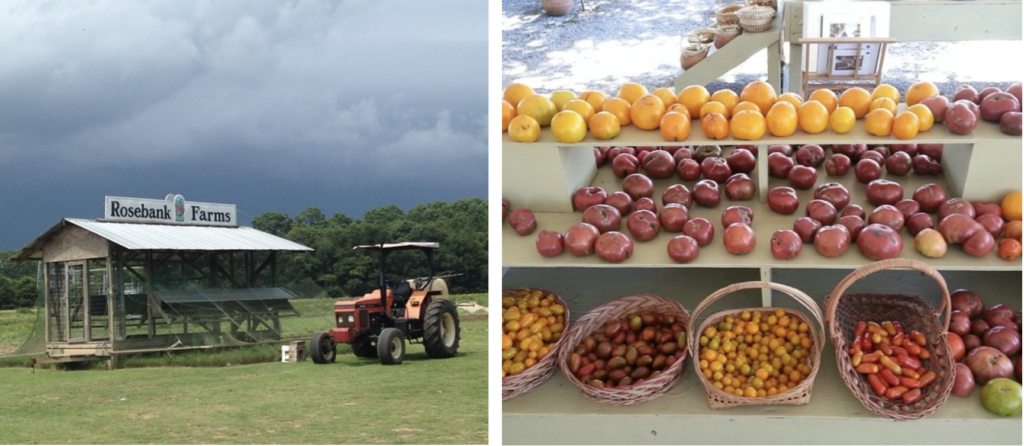
The Angel Oak is located on a city owned park space and awes visitors with its grandeur. This magnificent tree is estimated to be around 500 years old, and its dipping branches create 17,200 square feet of cooling shade. Live oaks get their name because they are green year-round, retaining their shiny green leaves even in the winter. The Angle Oak withstood catastrophic Hurricane Hugo in 1989 and is now protected and preserved for posterity.
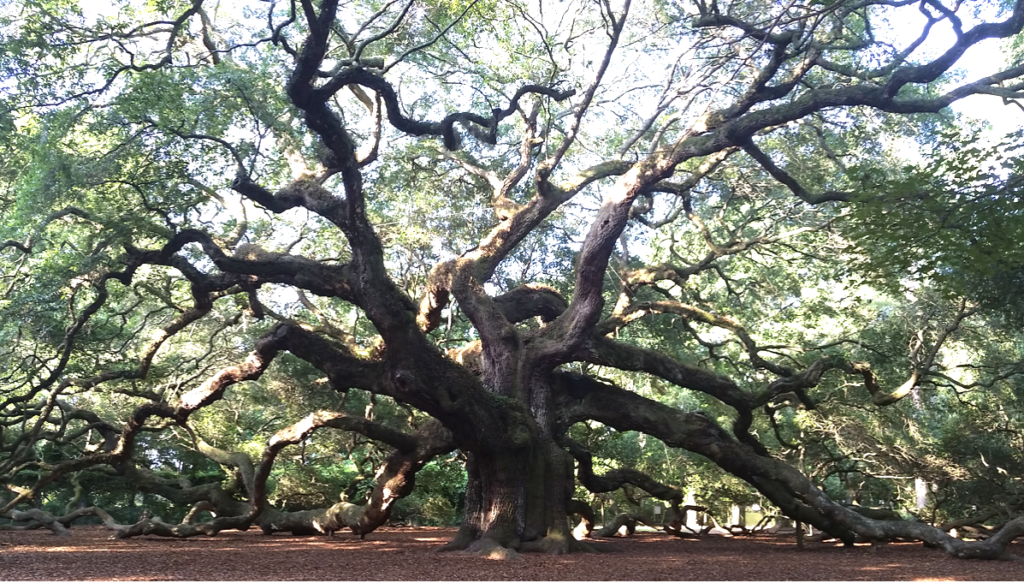
Lowtide Brewing nearby on Maybank Highway is the only brewery on the island. Founders Mike and Andy “take cues and inspiration from the natural world and commit to being good stewards of the land.” Selections change regularly but there are popular beers that remain part of the permanent menu: Aloha Beaches pineapple wheat beer, Ships Ahoy English brown ale, and Ocean Spritze Gose (a citrusy, sweet, and salty starter). The tasting room is open daily and on weekends there’s often music, events, and food trucks on hand.
Next, head southwest to Wadmalaw Island and visit Deep Water Vineyards on Bears Bluff Road. The 48-acre site has walking trails through the vineyards that are brimming with local grape varieties like muscadines, and a spacious tasting room. Deepwater began as Irvin House Vineyard in 2001, founded by a local family with deep johns Island roots. Tastings included six pours with choices like Low Tide (a dry white made from scuppernongs), Lowcountry Red (Ison muscadine), or High Tide, a light red. Plan a Saturday trip to enjoy Weekend Wine-Down, with music, tastings, and food trucks.
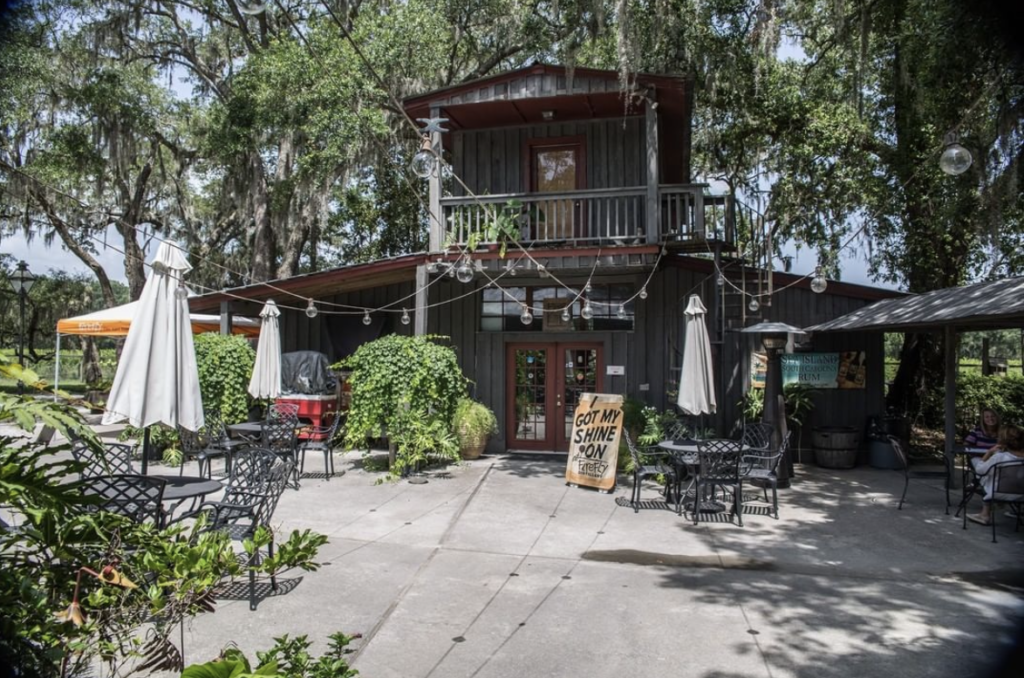
Next up, stop at the Charleston Tea Farm on Wadmalaw. It’s the only tea garden in North America, and guests can see acres of tea being cultivated. Visits to the tea factory and fields are free, but there is a small charge of the worthwhile and informative 45-minute trolley tour, which visits the greenhouse and offers behind the scenes insight into the history and business of growing tea in the Lowcountry. Planters experimented with growing tea in South Carolina in the eighteenth century, but the first successful outfit began in 1888 in Summerville at Pinehurst Tea Plantation. After the owner Dr. Shepard’s death in 1915, the farm lay wild and fallow until 1963, when an investor bought an old potato farm and transplanted to the tea plants to the site, and the Charleston Tea Farm was born. Bill Hall and the Bigelow family have grown the business into the nationally renowned tea provider it is today.
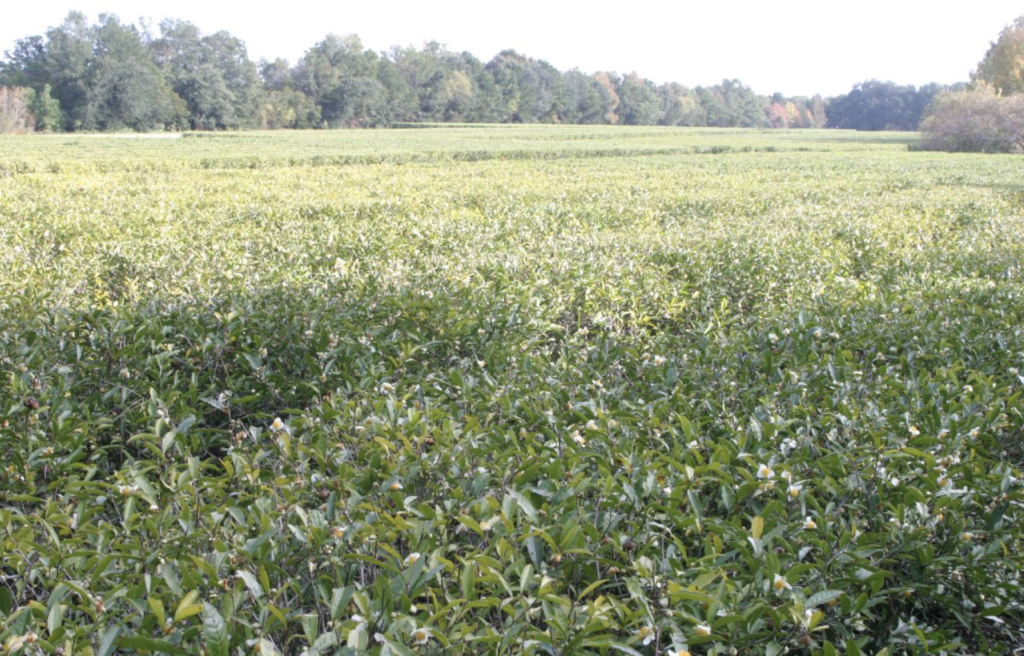
At the end of Wadmalaw is Rockville, a quaint, sleepy town at the tip of the island dating back to the 1820s as a resort community. The site began as The Rocks, a plantation granted to Paul Hamilton in 1736, and the surrounding area grew into a village along the Bohicket Creek bluff. The small historic district is full of antebellum and Victorian summer houses with large porches for rich planters trying to escape the oppressive heat and enjoy the sea breezes. There are still two commercial shrimp docks and a small grocery store, and two historic churches (Grace Episcopal and Wadmalaw Presbyterian).
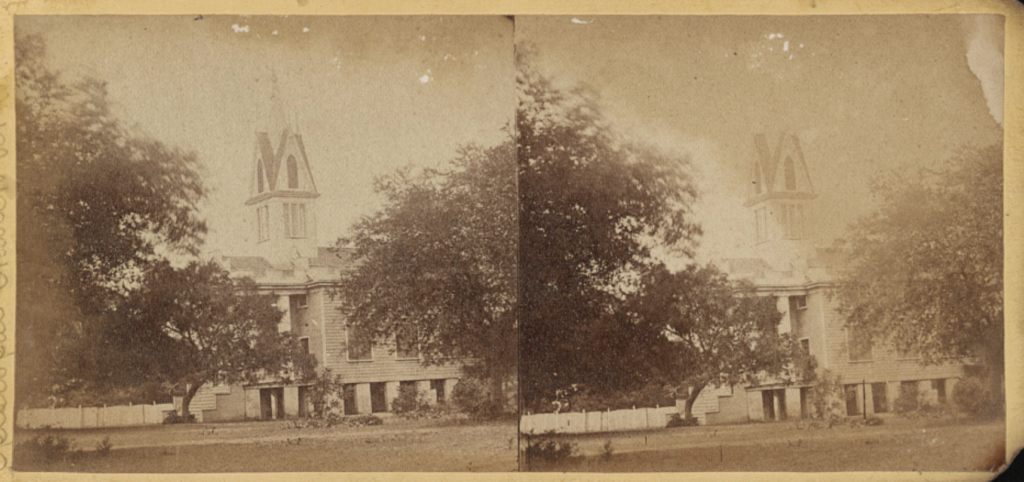
The town comes to life for the annual Rockville Regatta, hosted by the prestigious Sea Island Yacht Club. Lish Thompson notes that the first written source mentioning the local sailboat races was a diary entry by Reverend John Cornish in 1842. By 1890, the annual sailing tournament known as Rockville Regatta, which features unique, locally designed Sea Island One crafts (perfected in 1947 by Oliver Seabrook), was born. The Yacht Club hosts an invite-only boiled shrimp dinner the night before the races, and the next day, visitors from the city and beyond line the creek banks to drink beer, eat the remaining shrimp, and watch the harrowing sail races in action.

On the way back home, we recommend the Stone Market and Tomato Shed for dinner and a last chance to grab fresh to-gos, take and bake, desserts, and ingredients sourced on the islands, for sale in their grocery and gift shop. The Ambrose family works to “exceed expectations with exceptional customer service, quality prepared and unprepared foods, locally made crafts, sauces, grits, honey, jellies, jams, and more.” Pete Ambrose started as a shrimper in 1967 and then expanded into farming with his wife Babs. The Stono Market has been open and hopping since 1987 and the Tomato Shed has served delicious lunch and dinner since 1992. They note, “The menu is classic, Southern country cooking with meat choices like roast pork, beef, or barbecue and side dishes like tomato pie, squash casserole, collards, and butter beans. Whatever you are in the mood for, there is a selection to meet your appetite. And if you’re looking for some shrimp, we usually have a supply of the day’s freshest catch for sale.” Sit down dinners at the Tomato Shed are large, no frills, and fabulous. Menu items include collard dip, honey blackened salmon, fried green tomatoes, and traditional supper (meatloaf, shrimp and grits, crab cakes, pork chop) with two fresh Southern sides (tomato pie, squash casserole, sweet potato casserole, grits, butterbeans, and braised cabbage). The 200 acre Ambrose Family Farm nearby offers seasonal U-pick visits for blackberries, tomatoes, strawberries, and blueberries, and year round CSA produce boxes.
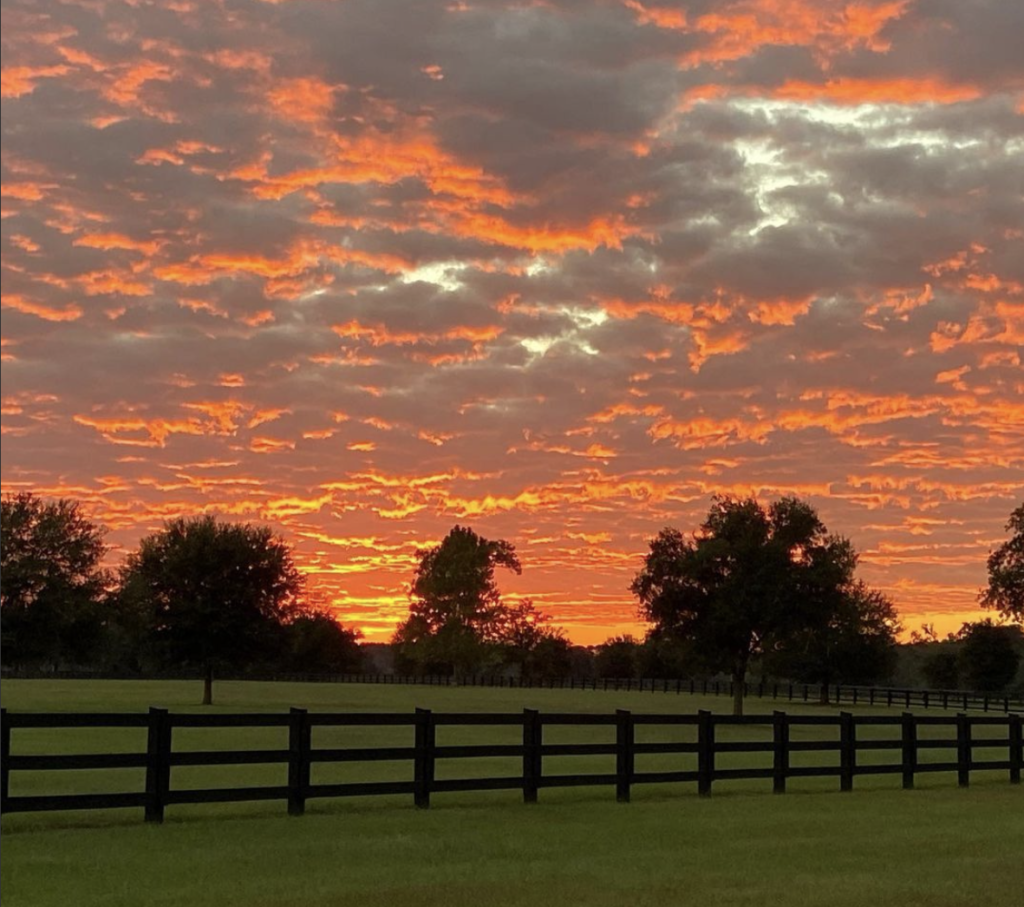
Sources:
- Michelle Adams and Kate Di Silvestre. Wadmalaw Island. Charleston: Arcadia Publishing, 2012.
- Alicia Anderson Thompson. Charleston: Arcadia Publishing, 2006.
- Christina Butler. “Johns Island: a coastal community combining new development with historic character and natural beauty.” Charleston Empire Properties blog series. August 2020. https://charlestonempireproperties.com/johns-island-history/
- Stringfellow, Elizabeth. A Place Called St. John’s: The Story of Johns, Edisto, Wadmalaw, Kiawah, and Seabrook Islands of South Carolina. Reprint Company, 1998.
- http://www.deepwatervineyard.com
- https://www.ccprc.com/54/Mullet-Hall-Equestrian-Center
- https://www.townofrockville.com/community/about/
- National Register nomination, Rockville Historic District. 1972.
- https://sunrise-bistro.com
- Hannah Raskin. “Blackbird Market is a hot spoton Johns Island.” Post and Courier. 2 May 2018.
- Bertauski, Tony.“Taking care of the Angel Oak, a grand old lady Johns Island tree estimated to be 400-500 years old”. Post and Courier. 2 November 2016.
- https://www.charleston-sc.gov/153/Angel-Oak
- https://lowtidebrewing.com
- http://www.rosebankfarms.com
- https://stonofarmmarket.com
- https://discoversouthcarolina.com/products/27879
- https://agriculture.sc.gov/agritourism-farms/ambrose-family-farm-palmetto-point-farm/
- https://charlestonteagarden.com/history



